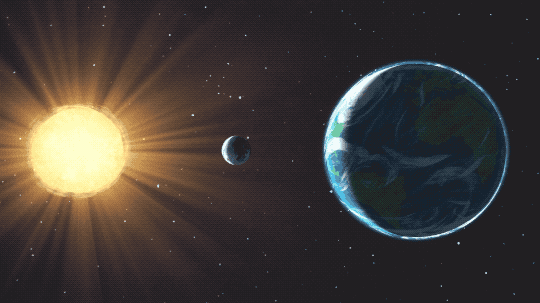
Many believe scientists become atheists as they decode the secrets of the universe. Turns out, the more information they uncover, the closer many of them get to God. Author Melanie Phillips, in her book “The World Turned Upside Down—the Global Battle over God, Truth and Power,” writes that “science was motivated from the start by the belief that there were comprehensible laws in nature—which could only have come from a rational Creator.”
Notable scientific thinkers from the earliest times have been people of faith. That includes Thomas Aquinas—saint, philosopher, and doctor of the Church. He reasoned that since God created the universe through divine wisdom and endowed mankind with a reasoning mind, the universe must be supremely rational.
Today, humanity’s reasoning mind seems split between two schools of thought: one founded on information sought as a means to an end and one devoted to achieving wisdom connecting us with the source of our beginning. Wisdom is our Creator’s language. For seekers of information, enlightenment comes from what’s in front of their eyes. Seekers of wisdom accumulate enlightenment via every element of their life, seen and unseen. Sunday’s first reading (WIS 6:12-16) tells us it is in wisdom’s nature to bring all seekers to her:
Resplendent and unfading is wisdom, and she is readily perceived by those who love her, and found by those who seek her.
Once found, fear of mortality is lost and our connection to the eternal is established. Jesus, the Christ, and the wisest human in our history, used his endowment of divinity to show us that death is a doorway, not a dead end. Paul told the Thessalonians as much in Sunday’s second reading (1 THES 4:13-18):
For if we believe that Jesus died and rose, so too will God, through Jesus, bring with him those who have fallen asleep.
Heaven and wisdom are indivisible rewards because wisdom is the language that connects us with our source. Seeking wisdom prepares us for that union. As we negotiate our way through the challenges of this world, our accumulating wisdom gradually helps us avoid becoming a slave to them. Jesus demonstrated that skill throughout his ministry, and in Sunday’s gospel (MT 25:1-13), he likens such preparation to lighting the way to the kingdom of heaven vs. remaining in darkness.
“The kingdom of heaven will be like ten virgins who took their lamps and went out to meet the bridegroom. Five of them were foolish and five were wise. The foolish ones, when taking their lamps, brought no oil with them, but the wise brought flasks of oil with their lamps. … While [the foolish] went off to buy [more oil], the bridegroom came and those who were ready went into the wedding feast with him. Then the door was locked. Afterwards the other virgins came and said, ‘Lord, Lord, open the door for us!’ But he said in reply, ‘Amen, I say to you, I do not know you.’ Therefore, stay awake, for you know neither the day nor the hour.”
Science taught us to tell time by the sun, but that source is just temporary light. By the time our sun goes dark, will humanity have been wise enough to seek out the original way, truth and light of God? Thomas Aquinas phrased this question in a way even earthbound scientists can understand, equating our Creator with the sun and us with the moon:
The sun which possesses light perfectly, can shine by itself; whereas the moon which has the nature of light imperfectly, sheds only a borrowed light.
That works—as long as God stays at the center of our orbit.
–Tom Andel